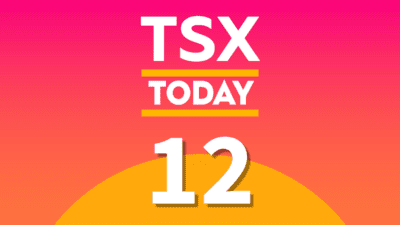The GST/HST credit is a non-refundable amount that is paid to low and modest-income individuals and families in Canada. This tax credit is paid four times a year and helps offset all or part of the goods and services tax (GST) or the harmonized sales tax (HST) that you pay.
The next payment date for the GST/HST tax credit is July 5 and you may eligible for up to:
- $456 if you are single
- $598 in case you are married or have a common-in-law partner
- $157 for each child under the age of 19
If you are a single individual with an adjusted family net income of less than $48,012 you will be entitled to the GST/HST tax credit. The income limit for a single parent with one child is $53,992 while for a married couple with no children it stands at $50,852.
These benefit payments received each quarter should be put to use in case you are not cash-strapped. At first glance, the tax refunds might not seem a lot. However, saving for your retirement is a long-term play and you can benefit from compounded returns over time if you are disciplined and focused.
Bet on the S&P 500 ETF
One of the best investment vehicles for those who don’t have the time or expertise to identify individual stocks is to buy and hold exchange-traded funds or ETFs. An ETF holds a basket of stocks giving the investor access to a diversified portfolio which will lower overall risk by a significant margin.
One of the most popular indexes in the world is the S&P 500 Composite Index. This index tracks the top 500 companies in the U.S. across sectors and has returned over 10% on an annual basis in the last six decades, easily outpacing long-term inflation rates and increasing your purchasing power.
Investing in an ETF also requires relatively less capital compared to buying individual stocks. For example, if you want to buy a single share of Apple, Amazon, Alphabet, Microsoft, and Facebook you would require a cumulative US$6,740 today. However, you can buy an S&P 500 ETF that provides you exposure to the tech giants mentioned above as well as other billion-dollar companies across other sectors, at a fraction of this price.
The VSP ETF is an ETF that tracks the S&P 500
There are several ETFs in Canada that aim to replicate the performance of the S&P 500 and one such fund is the Vanguard S&P 500 Index ETF. This ETF is hedged to the Canadian dollar which means you don’t have to worry about foreign exchange fluctuations.
The VSP ETF was launched on November 2, 2012, and has since returned 236%, indicating annual returns of 14.70%. It has an expense ratio of 0.09% and a management fee of 0.08%.
The VSP ETF holds 507 stocks with a median market cap of $216.7 billion. The fund has a price-to-earnings multiple of 26.4 and a price to book ratio of 4.4. Comparatively, the earnings growth rate is pegged at 18.9% while the dividend yield stands at 1.4%.
You can buy a single unit of the VSP ETF for just $71.61 at the time of writing, giving you a cost-efficient way to access blue-chip stocks south of the border.







